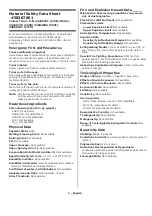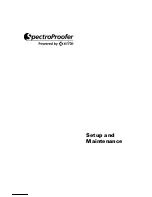
Table A:
Cell type
C
5
Ah
0.2 C
5
A
Electrolyte
Topper nozzle
(Ah)
(A)
reserve (cm
3
)
(mm)
SRA 75
75
15
185
59
SRA 90
90
18
285
59
SRA 110
110
22
280
59
SRA 125
125
25
335
59
SRA 140
140
28
335
59
SRA 160
160
32
575
54
SRA 190
190
38
570
54
SRA 220
220
44
645
54
SRA 260
260
52
765
54
SRA 280
280
56
900
54
SRA 310
310
62
900
54
SRA 340
340
68
1085
54
SRA 375
375
75
1085
54
SRA LT 75
75
15
185
59
SRA LT 90
90
18
285
59
SRA LT 110
110
22
280
59
SRA LT 125
125
25
335
59
SRA LT 140
140
28
335
59
SRA LT 160
160
32
415
39
SRA LT 190
190
38
410
39
SRA LT 220
220
44
465
39
SRA LT 260
260
52
555
39
SRA LT 280
280
56
650
39
SRA LT 310
310
62
645
39
SRA LT 340
340
68
785
39
SRA LT 375
375
75
780
39
SRA HT 70
70
14
185
59
SRA HT 85
85
17
285
59
SRA HT 105
105
21
280
59
SRA HT 115
115
23
335
59
SRA HT 130
130
26
335
59
SRA HT 150
150
30
575
54
SRA HT 175
175
35
570
54
SRA HT 200
200
40
645
54
SRA HT 245
245
49
765
54
SRA HT 265
265
53
900
54
SRA HT 290
290
58
900
54
SRA HT 315
315
63
1085
54
SRA HT 350
350
70
1085
54
■
Batteries not equipped with a water
filling system (typical frequency of
topping-up is every 6 months):
No electrolyte level measurement is
necessary if you use a Saft cell-topper,
which allows the correct level to be
obtained by a simple nozzle setting.
See nozzle lengths in Table A.
If a cell-topper is not available, the
electrolyte level must be measured.
Insert a transparent glass or plastic tube
(alkali resistant, 5 to 6 mm in diameter)
vertically into the cell vent until it touches
the top of the plates. Close the top
end of the tube by putting a finger on
it and remove it from the cell.
The height of the liquid in the tube
indicates the electrolyte level.
Cell type
Level (mm)
high low
SRA 75 to 140
66 15
SRA 160 to 375
75 15
SRA LT 75 to 140
66 15
SRA LT 160 to 375
59 15
SRA HT 70 to 130
66 15
SRA HT 150 to 350
75 15
■
Batteries equipped with water filling
system (typical frequency of topping-up
is every 12 months):
• Remove transport seals and connect
hydraulic tubing between cells up to a
maximum of 50 cells.
• Make sure that the tubes are
completely inserted for a good seal.
• The hydraulic connection of cells must
be in parallel to the electrical
connection, in order to avoid voltage
differences of more than 1.2 V between
two hydraulically connected cells.
• The hydraulic connection must be
horizontal in order to avoid siphoning.
• The water filling circuit output must not
be too close to electrical equipment,
electrical circuit, and metallic structure.
• Water filling circuit input must be
connected to the self-closing inlet.
• Topping-up can be performed by gravity
or using adapted pump with a flow rate
of 0.7 l/min at a relative pressure of
0.3 bar maximum.
7. Periodic maintenance
■
Maintenance operations (not including
the topping-up operation):
Periodic maintenance should be carried
out at least every 5 years.
For detailed maintenance, please refer to
the maintenance manual of the battery.
• Keep the battery clean using only water.
Do not use a wire brush or solvents of
any kind. Vent plugs can be rinsed in
clean water.
• Check the torque of all terminal screws.
Coat with grease or neutral vaseline all
the terminal nuts and cell connectors.
• Check charger settings. It is very
important that the recommended
charging voltage remains unchanged.
High water consumption of the battery
is usually caused by improper voltage
setting of the charger.
8. Changing electrolyte
It is not necessary to change the
electrolyte during the life time of the cells.
9. Environment
To protect the environment all used
batteries must be recycled. Contact your
local Saft representative for information.
Saft
Industrial Battery Group
12, rue Sadi Carnot
93170 Bagnolet - France
Tel: +33 1 49 93 19 18
Fax: +33 1 49 93 19 64
www.saftbatteries.com
Doc N° 21881-2-1113
Data in this document is subject to change without
notice and becomes contractual only after written
confirmation.
Société par Actions Simplifiée
au capital de 31 944 000
RCS Bobigny B 383 703 873
Le Révérend Imprimeur - Printed in France - 1k
SRA/SRA LT/SRA HT Ni-Cd Batteries




















